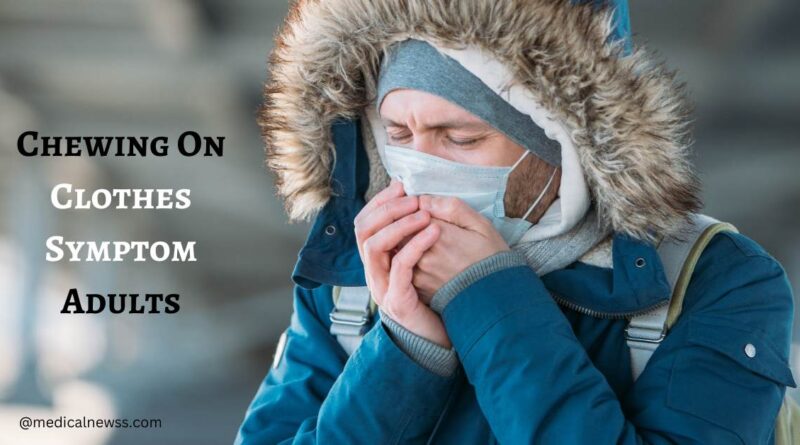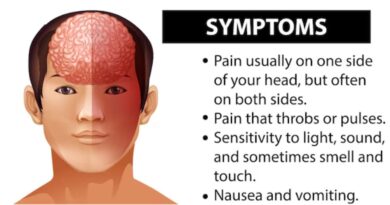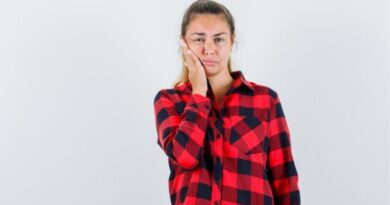Chewing On Clothes Symptom Adults
Introduction
Chewing on clothes in adults can be a rather weird behavior; however, the reasons that lead to such a behavior are quite vast. In most cases, this behavior often goes unnoticed and misunderstood by many individuals and their families, resulting in confusion or even concern. Knowing the causes will help one determine an appropriate solution for it. In this article, we go deep into the possible causes, implications, and ways to manage the symptoms of chewing clothes in adults. Whether for stress, sensory needs, or other factors, understanding why a person engages in this behavior will be a gateway to better overall well-being.
What does chewing on clothes in adults mean?
Adult chewing on clothes is not an innocent habit. Rather, it is a form of unconscious behavior that could give one a sign about deep underlying issues. The causes vary in ranges from childhood habits continued in adult life to the presence of as yet unaddressed mental health conditions. Such persons chew on shirt collars or sleeves or even accessories like fabrics. The reason is either psychological, sensory, or medical. So addressing this issue in an integral way makes all the difference.
“chewing on clothes in adults: could be and what is acibadem health point knee replacement care”
Stress and Anxiety: A Hidden Trigger
Stress and anxiety are major contributors to repetitive behaviors such as chewing on clothes. Adults under constant stress might unknowingly use this habit to deal with their emotions. Chewing provides a sensory distraction, which helps in temporarily calming their nerves. Techniques like cognitive behavioral therapy (CBT), relaxation exercises, and structured routines can help break this pattern.
Sensory Processing Issues and Chewing Habits
Sensory processing problems can lead to adults chewing on clothing. This is when the brain cannot process and respond to sensory input correctly. Chewing satisfies a sensory need or self-regulates in overwhelming environments. Sensory tools, such as chewable jewelry or stress-relief objects, can provide alternatives while addressing the underlying sensory challenges.
Medical Conditions Associated with Chewing Behaviors
Some medical conditions, such as ADHD, autism spectrum disorder, or even deficiencies, might cause adults to chew on clothes. Deficiencies in iron or zinc cause pica behaviors, which include chewing on non-food items. With the right diagnosis and treatment for the underlying medical condition, the habit is reduced.
Emotional Comfort: The reason why some adults chew clothes
For some adults, it is a source of emotional comfort to chew on clothes. It may remind them of soothing habits they used to have when they were younger, giving them a sense of safety during hard times. It often re-emerges at critical periods or when major changes are happening in life. Therapy sessions that focus on building emotional resilience can help find healthier ways to deal with emotions.
Is It a Sign of Pica or Other Disorders?
People who suffer from pica seek and eat non-food objects. While chewing on clothes doesn’t always indicate pica, it can be a related symptom. Other disorders, such as obsessive-compulsive disorder (OCD), may also lead to repetitive chewing. Consulting a healthcare professional for an accurate diagnosis is critical in addressing these conditions effectively.
Social and Psychological Impacts of Chewing on Clothes
Chewing clothes can lead to social embarrassment and psychological stress. Adults may feel embarrassed about the behavior, which may reflect on their confidence and relationship with others. Educating the family and friends about the condition increases their understanding and support for such habits, reducing the stigma of such behaviors.
How to Identify and Correct the Behavior
This will involve recognition of patterns and triggers that come along with the behavior to treat chewing on clothes. Keeping a journal can provide the needed insight on when, where, and other environmental factors related to emotional stimuli. Communication among loved ones, coupled with getting professional help, makes all the difference.
Coping and Treatment Options
Treatment for chewing on clothes varies depending on the underlying cause. Options include behavioral therapy, stress management techniques, and using alternative tools like chewable necklaces. Nutritional assessments can rule out deficiencies, while mindfulness practices can reduce the frequency of this habit. Consistent support from family and friends plays a crucial role in recovery.
When to Seek Professional Help
If the habit of clothing chewing persists or worsens, then professional intervention may be required. A professional psychologist, occupational therapist, or medical doctor can tailor and deliver the appropriate interventions. Early treatment will ensure that the habit escalates no further or creates another complication. Often, the best results come from a team effort.
How to Deal With It?
As we mentioned, the first thing to do is to try and find out why someone is chewing clothes. Do they have an oral fixation? Is it just a habit? Boredom? Or is there a serious problem that needs to be addressed?
If the problem is due to stress or anxiety, then the only way to solve it is to find out what is causing the anxiety in the first place. After that, you will have to work on methods that will keep you calmer and avoid negative thoughts and pressure.
The same thing applies to oral fixation. The goal is to concentrate on not doing it. It may seem acceptable to chew your collar or a sleeve, but you will have to fight the impulse. The best course of action is to see an expert and begin developing a method that will remove the necessity for non-food chewing.
It’s worth mentioning that issues like SDP require a different approach. You must figure out how to deal with whatever is upsetting you. You can change your attire, turn down the loud music, and so on. All you have to do is keep in mind that there is always a solution. It is not easy, but it is one of those things you will have accomplished with enough work and effort.
Conclusion
Chewing on clothes in adults may seem like it’s not a big issue, but it can often indicate deeper emotional, sensory, or medical issues. What the person needs is to understand this behavior’s root cause, either due to stress, sensory processing difficulties, or other underlying conditions. With the right strategy, individuals can overcome such habits and improve their quality of life and emotional well-being.
FAQs
Is chewing on clothes in adults normal?
Chewing on clothes is not unusual in adults and can be a sign of hidden stress, sensory problems, or medical conditions.
What are the medical causes of chewing on clothes?
Some medical conditions that may cause this include ADHD, autism, or nutritional deficiencies.
How does stress lead to clothes chewing?
Stress creates habits like chewing, which act as a way of reducing tension.
Are there other ways to stop clothes-chewing?
Yes, by providing the child with some alternatives for chewing, like a piece of chewable jewelry or stress relievers.
How soon do I need to seek a medical consultation?
This should be sought immediately if it has continued over time or really impacts life.




